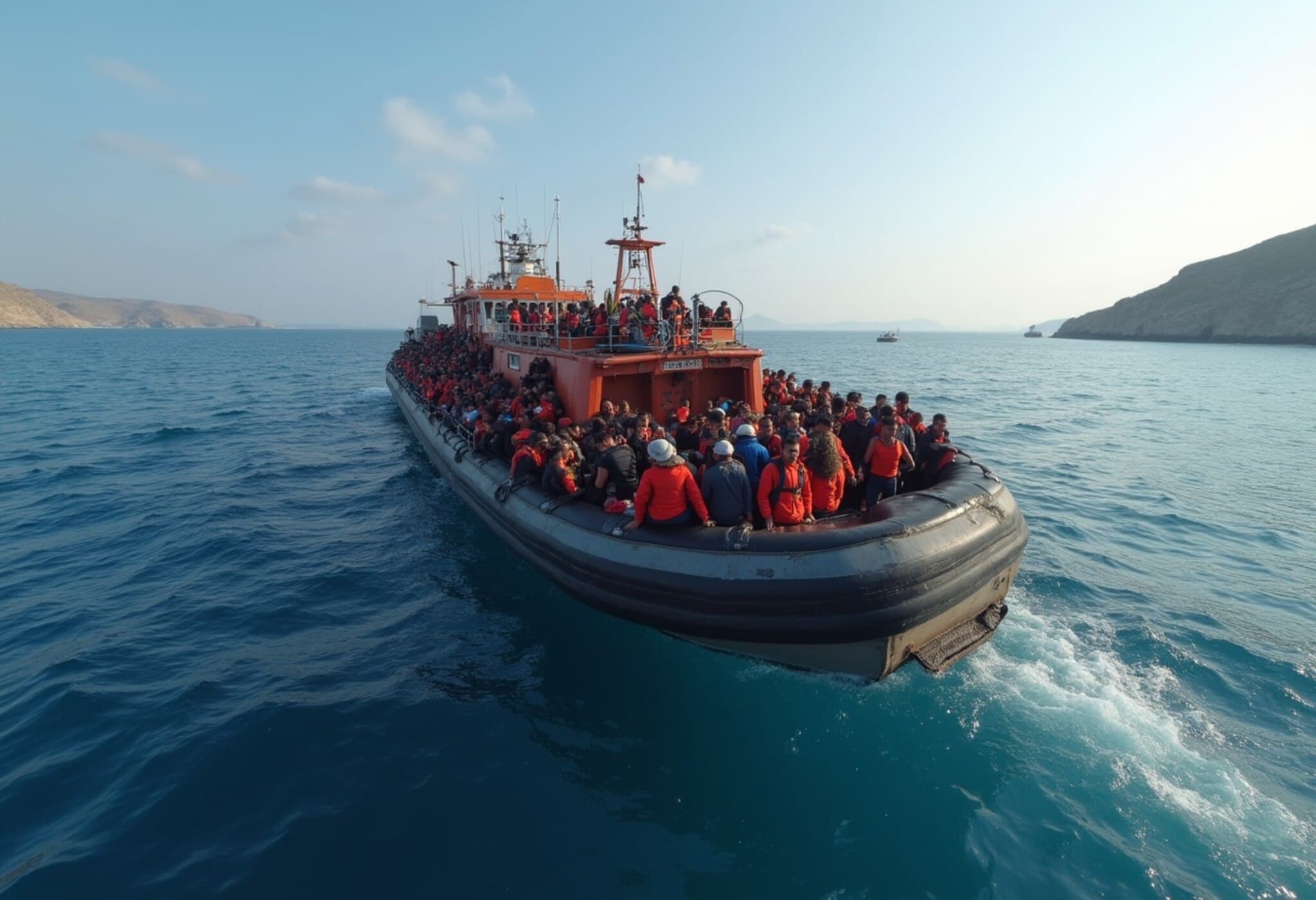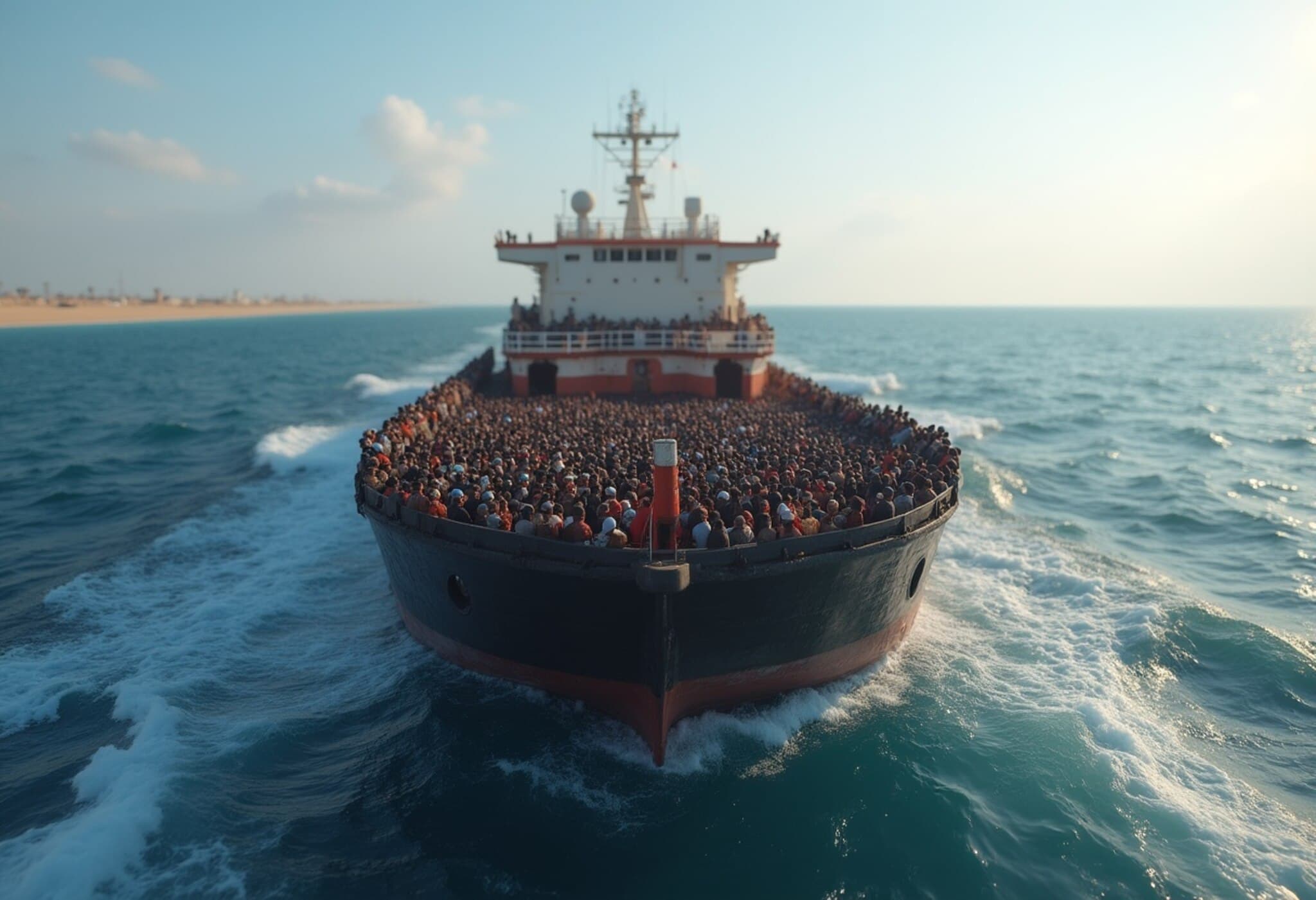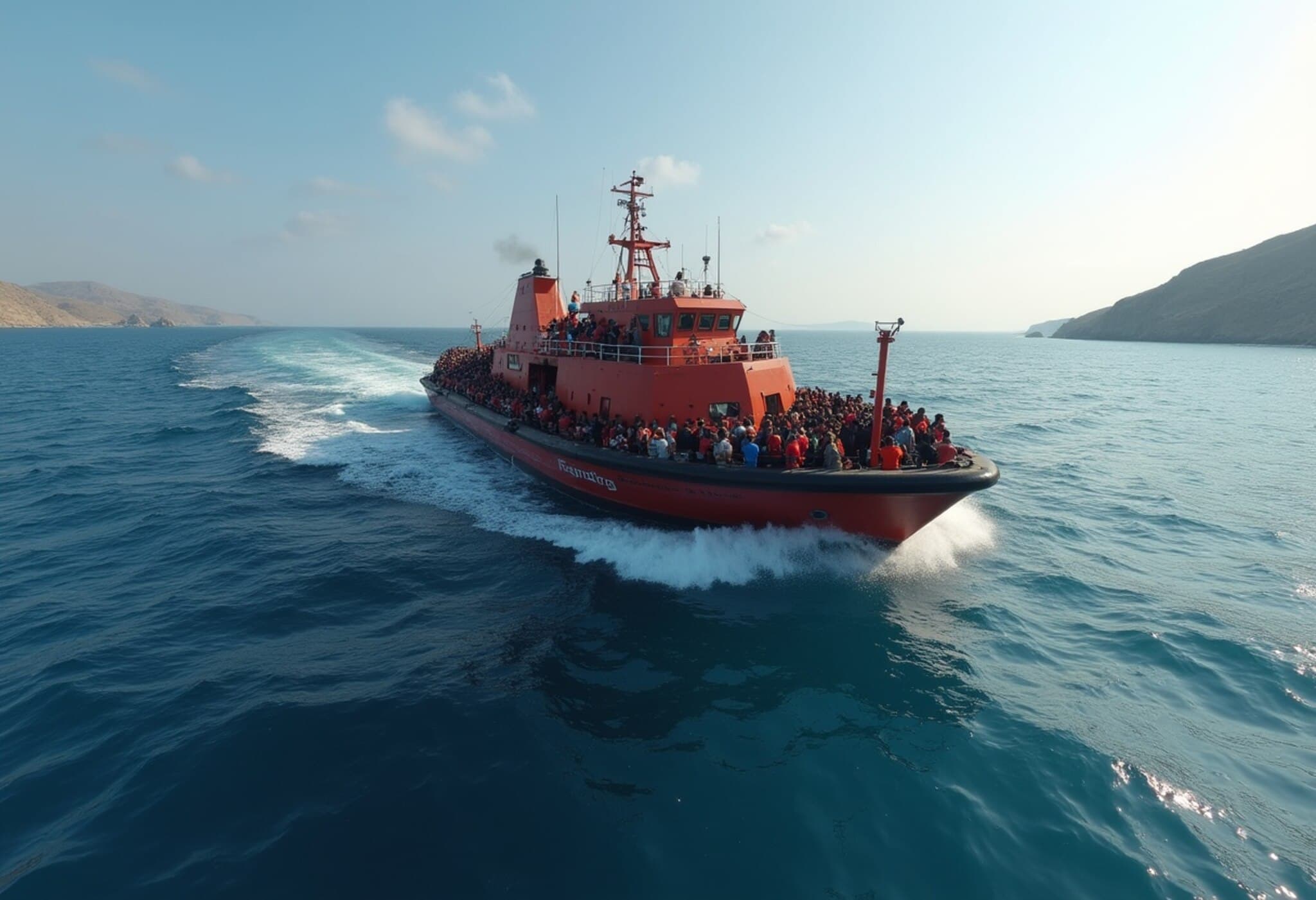At Least 20 Migrants Die in Shipwreck Near Lampedusa, Italy
In a heartbreaking incident that underscores the ongoing peril faced by migrants crossing the Mediterranean, at least 20 people lost their lives after a migrant boat capsized off the southern Italian island of Lampedusa on August 13, 2025. The tragedy has once again highlighted the fragile and dangerous journeys undertaken by those seeking refuge and a better life.
Rescue Efforts Underway as More Remain Missing
According to initial reports from the Italian news agency Ansa, rescuers have so far recovered 20 bodies. Authorities estimate that around 70 to 80 survivors were rescued, but concern remains that a similar number are still unaccounted for. Rescue operations continue amid fears that more migrants could be lost at sea.
Filippo Ungaro, a spokesperson for the United Nations High Commissioner for Refugees (UNHCR), conveyed his deep sorrow over the incident.
“Twenty bodies have been recovered and the same number are missing,” Ungaro wrote on his social media account X (formerly Twitter), emphasizing the continuing search for missing individuals.
The Broader Context of Migration Risks in the Mediterranean
Lampedusa, Italy’s southernmost point, has been a critical entryway for thousands of migrants fleeing conflict, poverty, and persecution in Africa and the Middle East. The journey across the Mediterranean is notoriously treacherous, with overcrowded and often unseaworthy vessels placing lives at immense risk.
This tragic shipwreck is part of a wider pattern that raises urgent questions about:
- The sufficiency of European border policies and search-and-rescue operations.
- The humanitarian responsibility of transit and destination countries.
- The root causes driving large numbers of people to embark on such dangerous journeys.
Expert Insights: A Call for Comprehensive Response
Migration experts warn that incidents like the Lampedusa shipwreck should prompt a reevaluation of international cooperation and maritime safety measures. Dr. Elena Moretti, a migration policy analyst based in Rome, notes:
“The Mediterranean continues to be one of the deadliest migration routes globally. It is imperative that the European Union and neighboring countries develop robust legal pathways and humanitarian protections to reduce reliance on perilous sea crossings.”
Moreover, strengthening rescue operations and ensuring quick, coordinated responses could save lives during such emergencies. International agencies, including the UNHCR, continue to appeal for increased support in managing this complex crisis.
What Lies Ahead for Migrants and Policy Makers?
While rescue teams tirelessly work to locate survivors, the broader migrant crisis demands sustained attention and action. The Lampedusa tragedy is a somber reminder of the human cost embedded within global migration challenges.
As governments debate immigration policies, balancing border security with humanitarian obligations remains a nuanced challenge. The need for comprehensive strategies that address both immediate rescue efforts and long-term migration drivers is more evident than ever.
Editor’s Note
This devastating shipwreck off Lampedusa raises pressing questions about the safety of Mediterranean migration routes and the policies governing them. Beyond the numbers and recovery efforts, the tragedy calls on the international community to reflect on its role in preventing further loss of life. How can Europe and the global community provide safer alternatives for vulnerable migrants? And what lessons must be learned from recurring tragedies to transform migration management from reactive rescue to proactive protection?
Ultimately, this is not just a story of a single disaster but a human crisis demanding empathy, strategic policy, and urgent action.










